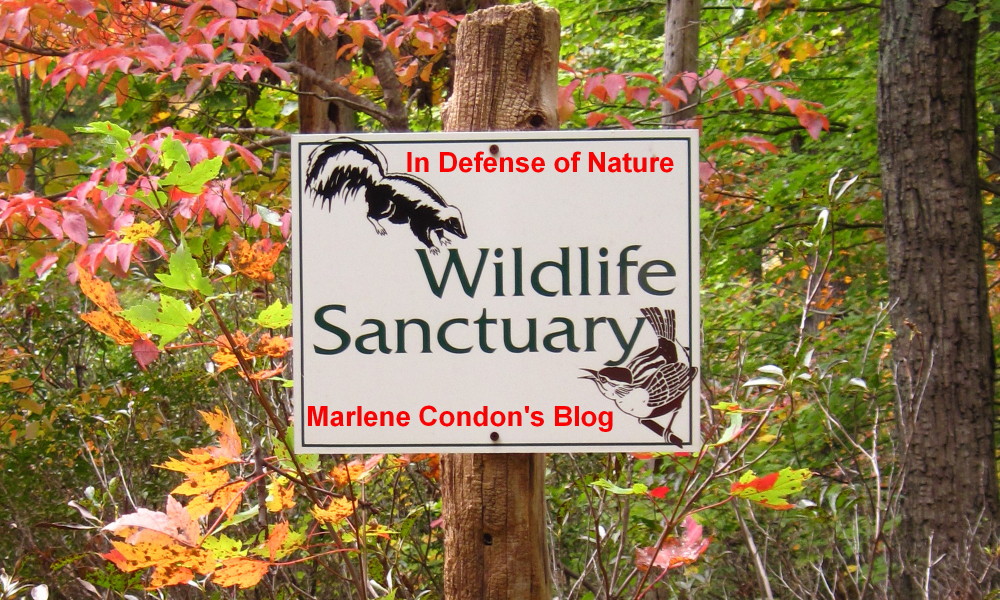The Trouble with Horticulture
ALL TEXT AND PHOTOS © Marlene A. Condon
People rant about various kinds of wildlife
that are problematic for them, when they themselves are responsible for the
difficulties they encounter. Expecting to garden without a knowledge of nature
is akin to expecting to bake bread without any knowledge of kneading and proofing
(the process of activating yeast).
Still, generation after generation of horticulturists
get degrees that are not based upon an understanding of how the natural world
works, even though that is where gardeners and farmers grow their plants. Consequently,
they provide gardeners with a lot of misinformation that has become “factual”
by way of constant repetition by those who’ve obtained doctorates in this field.
As a result, gardeners encounter wildlife problems and end up believing that many
critters are “pests” when, in fact, they are nothing more than innocent animals
trying to survive.
Your gardening doesn’t take place in a
vacuum. Thus, you have no choice but to follow natural laws. So, let’s look at just
a few of the “truisms” in gardening lore that are, in fact, myths. When
followed, they make unnecessary work for the gardener, and are also detrimental
to wildlife and the environment.
As
summer draws to a close and fall arrives, gardening experts issue the same axiom
year after year: Clean up your garden to
keep pest problems at a minimum. However, if you have a yard that is wildlife
friendly, this task is totally unnecessary. It deprives many animals of needed
winter food and cover, and over time, bankrupts the soil nutrition available
for growing plants.
While
it’s true that some insects overwinter in plant stalks, either as adults or
eggs, it’s also true that many animals will find these insects and eat them. Wrens
and woodpeckers will come to feeders to get sunflower seeds, but they mainly subsist
upon insects all the year around. As a result, they can be in big trouble if we
have a harsh winter with lots of snow. If you leave plants standing, especially
tall ones, these birds have a better chance of surviving because they may find
insects or their eggs on the stems above the snow.
Deer
Mice also eat insects. While you probably care more about birds than these
mammals—thinking that all rodents are “pests”—consider that mice help to
replant our forests and grasslands. They are Mother Nature’s gardeners, carrying
seeds back to their nests and dropping some along the way that may then grow
where they fell.
It’s
easy to overlook the fact that every creature does its part to keep the other components
of the ecosystem functioning properly, but humans need to recognize this actuality.
Even though you don’t want mice in your house, you should welcome them
outdoors, and not only because they are inadvertent gardeners. Mice are a prime
food source for owls, and thus are a real attractant if you would like to see
these birds of prey around your home.
Another
gardening myth is that you must keep your plants totally “bug-free” to keep them healthy. Healthy plants can withstand
a few insects chewing or sucking on them. Remember, plants exist to feed
animals (“Marlene’s Axiom for Life on Earth to Persist”). There’s no need to
run for the insecticide spray at the first sign of a few six-legged critters,
especially as many of these insects will be eaten if you’ve created a yard that
welcomes predators.
For
example, many folks worry about aphids, yet they rarely cause significant
damage in a yard full of birds. Hummingbirds, especially, require such tiny
insects to obtain protein and fat for good health. Remove aphids and you remove
a significant food source for these sprightly creatures.
You’ve
probably also heard that you shouldn’t allow your perennials to go to seed as
it drains the energy they could put into growing. A plant’s ultimate “goal” is to
reproduce so it’s well adapted to making seeds and still accomplishing the growth
that it should do each year. If you spend time deadheading (removing all “spent”
blooms—those that are going to seed), you are performing busywork and, again,
depriving your local wildlife of food. In my yard, House Finches flock to the
seeds of my Red Hot Poker (Kniphofia spp.),
and it still has grown larger and larger every year.
Lastly,
anywhere you plan to cover bare ground with mulch, you should instead let some “weeds”
grow. They serve as your natural mulch. Rather than stealing water, they keep
the ground shaded to prevent moisture loss, and many turn into lovely flowers that
provide beauty for the gardener, nectar for hummingbirds, butterflies and/or
numerous other insects, and possibly seeds for birds and small mammals if you
leave them standing.
Save
time and energy by gardening in a more relaxed manner, and you’ll help our
wildlife while you’re at it. Your reward will be the opportunity to watch nature
at work instead of you! 😊
NATURE ADVICE:
Here’s
my definition of gardening: The perpetual expenditure of human
energy to defy Mother Nature™.
From this follows my Golden Rule of Gardening: Always
follow Mother Nature’s examples™. Obey my Golden Rule (as
I have always done) and you won’t suffer the difficulties farmers and gardeners
typically encounter—because they are doing things incorrectly. And then you won’t
need to waste energy trying to make amends for disregarding the natural laws
you have no choice but to obey (the whole point of my book, The Nature-friendly
Garden).




No comments:
Post a Comment